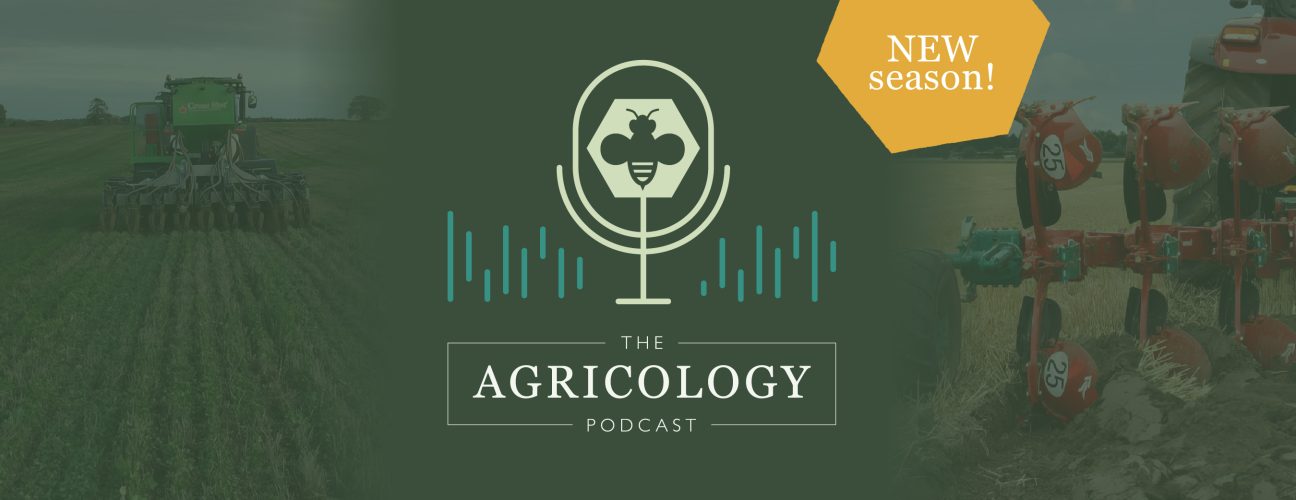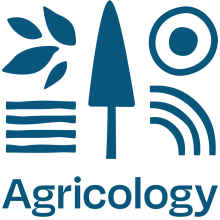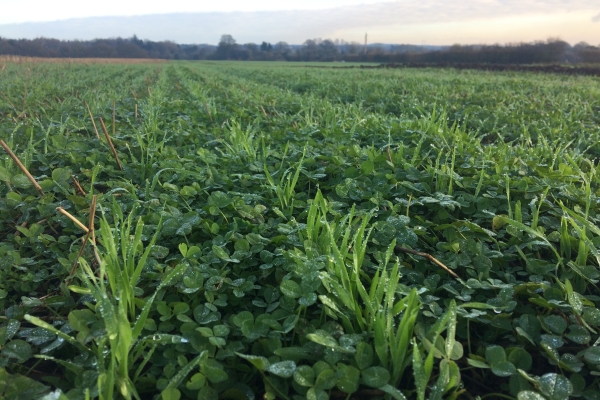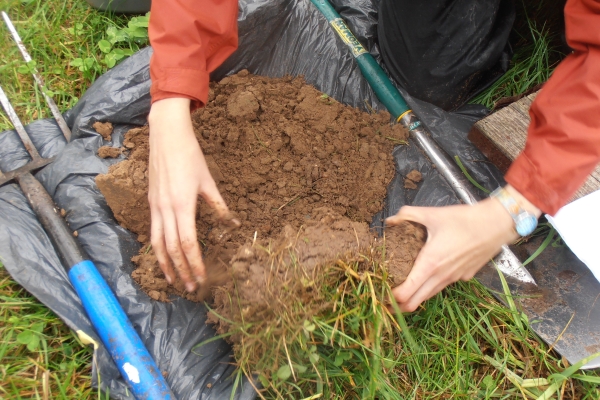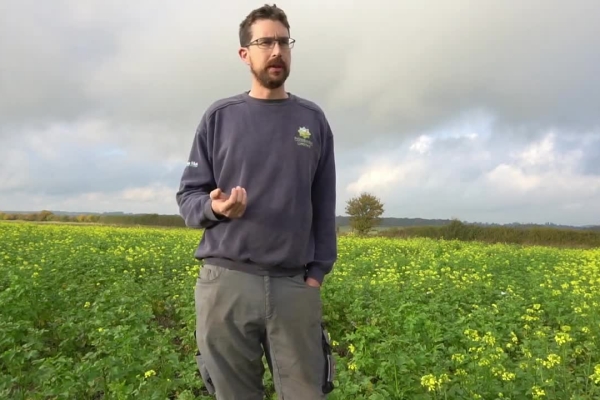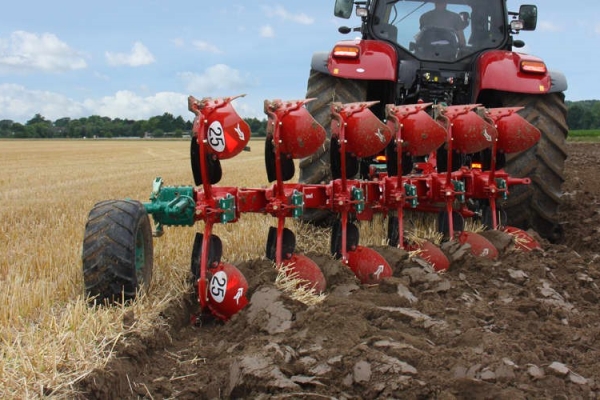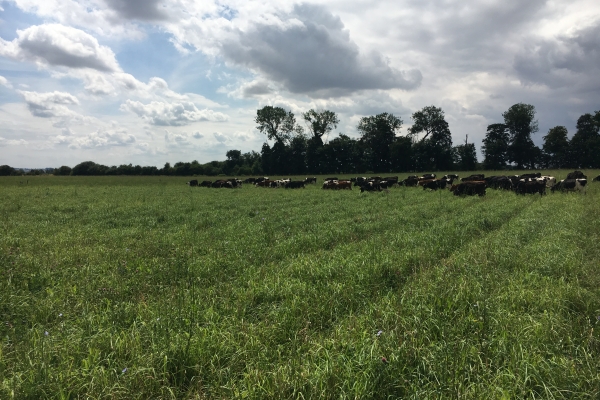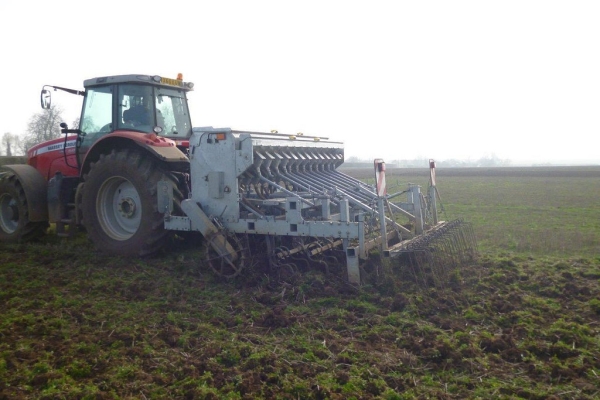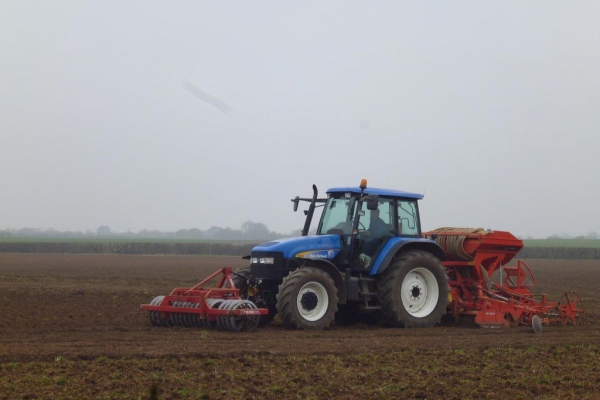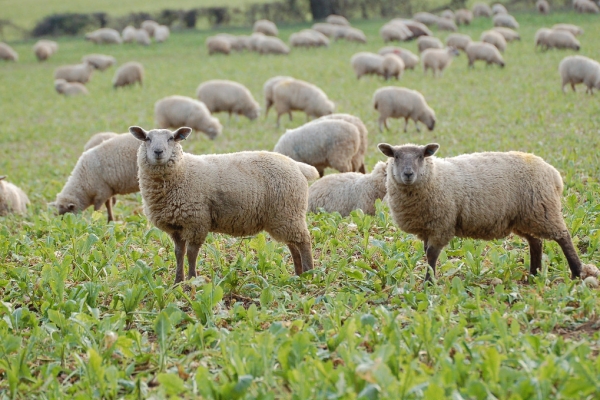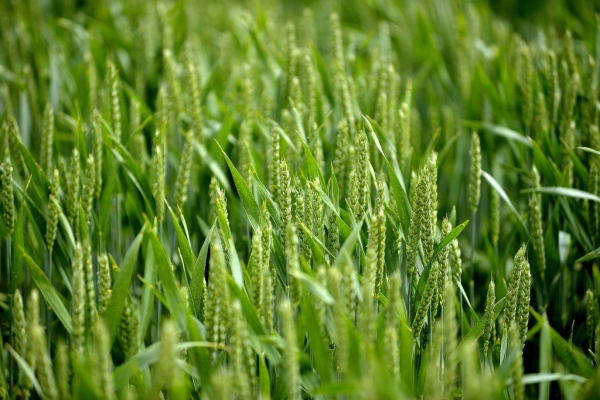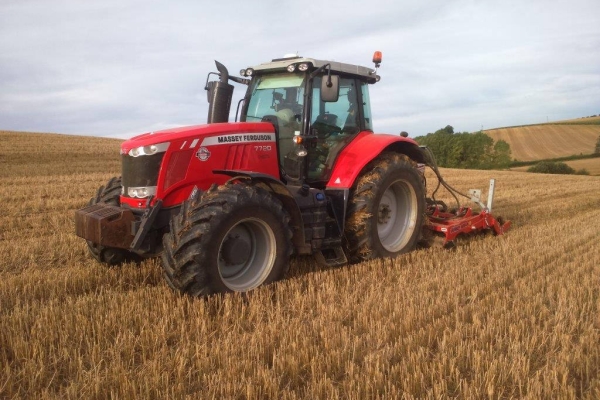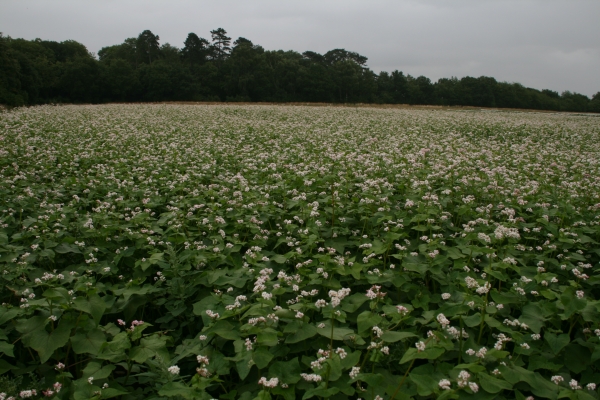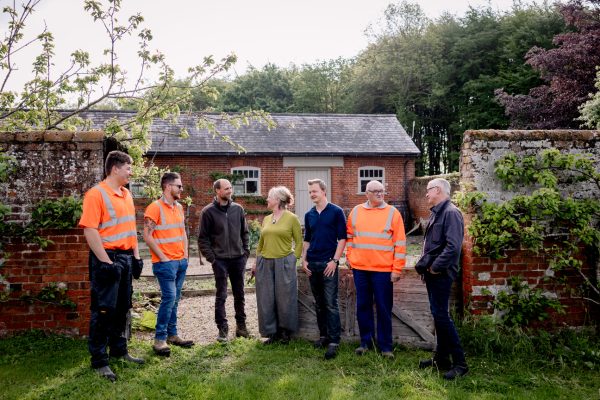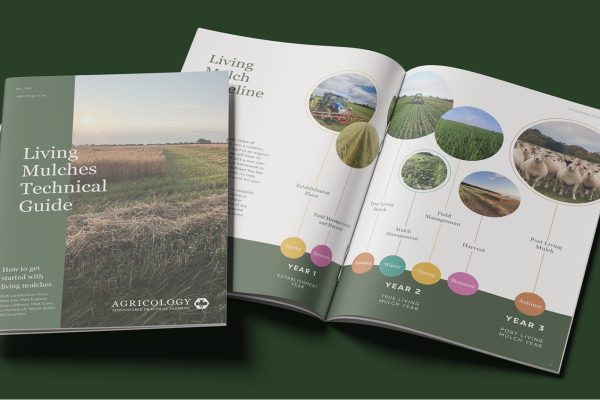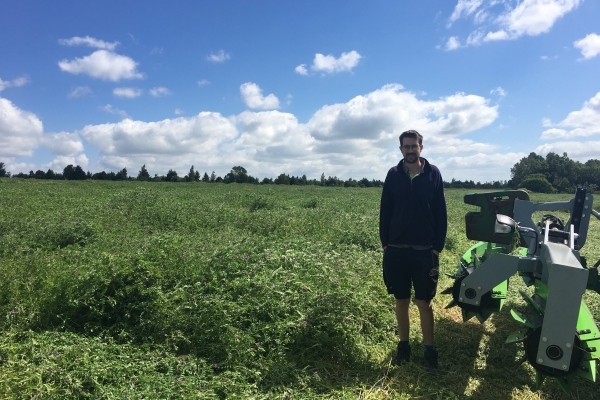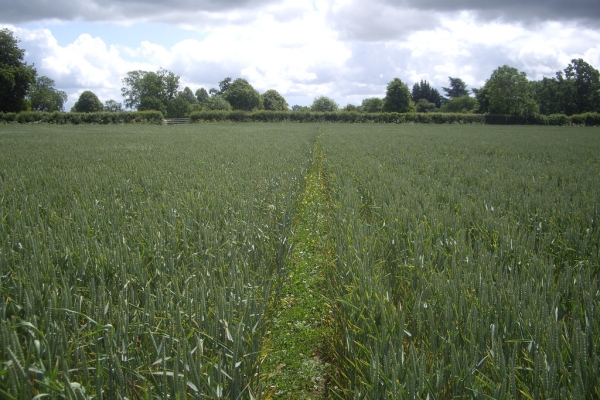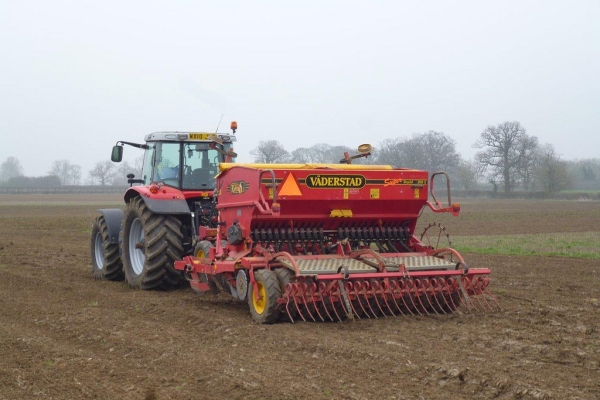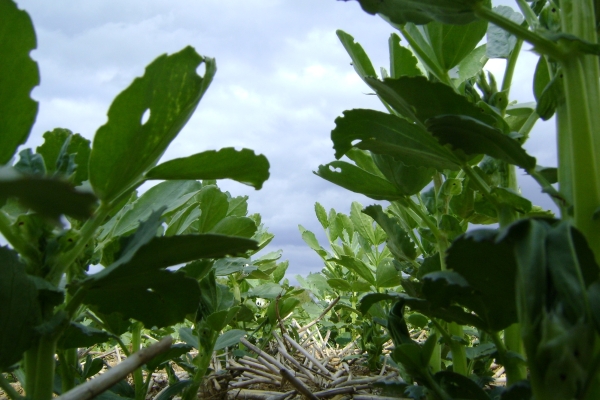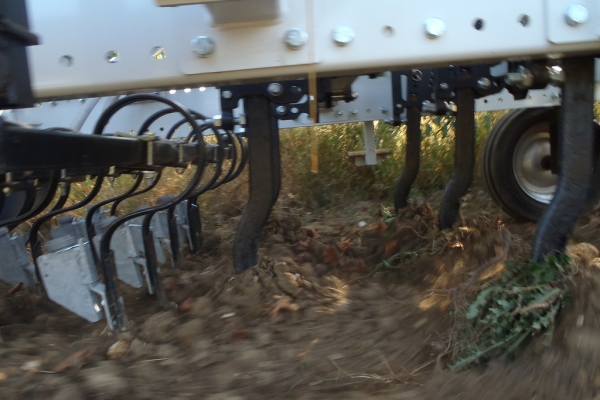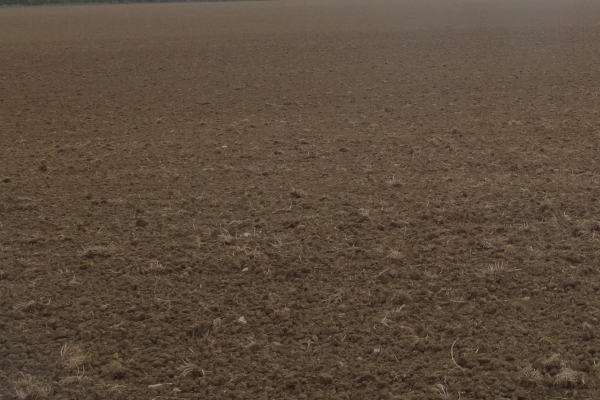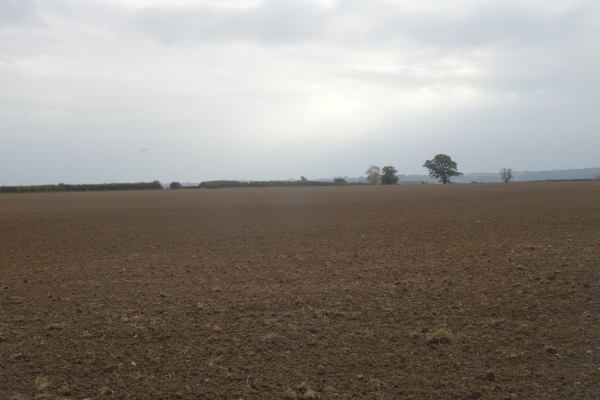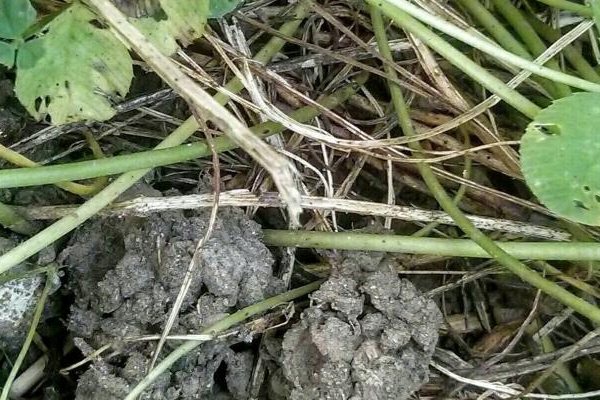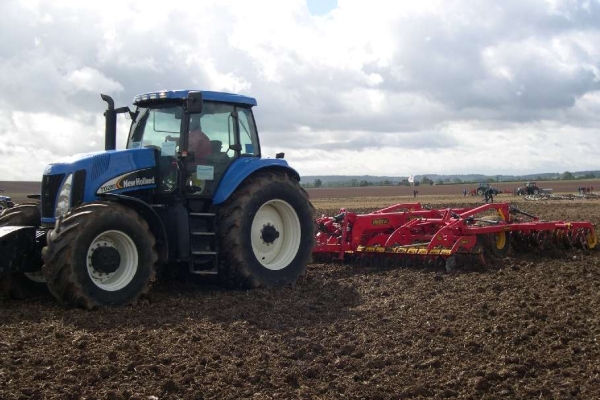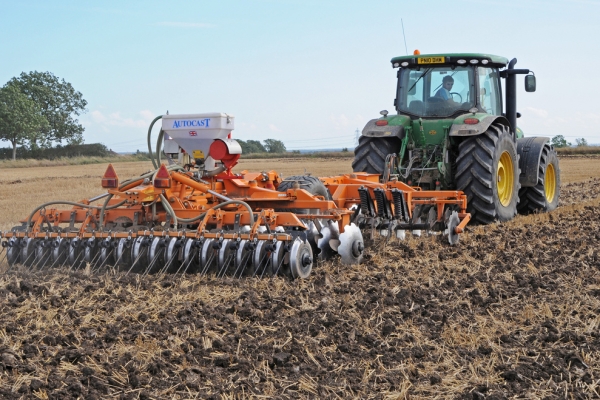To Till or Not to Till – Agricology Podcast
Project Background
This series brings together a diverse range of voices to explore the complex and often polarising topic of tillage. From scientists and researchers, to organic pioneers and regenerative farming advocates, we delve beyond the binary plough or don’t plough to highlight a much needed truth – context is everything.
The series highlights that tillage decisions depend not only on soil type, climate, and crop choice, but also on your philosophy, financial pressures, and farm history. No one practice is a silver bullet. Adaptability, observation, and learning from your land and from each other are key. The ‘holy grail’ isn’t no-till or full inversion, but a farming system rooted in resilience, and responding to local conditions, with an emphasis on when, why, and how to till.
Guests such as John Pawsey and Mark Measures emphasise that shallow, strategic tillage, balanced with rotations and leys, can support both productivity and soil health, while Julia Cooper and Jonathan Storkey unpack the biological consequences of tillage and its role in larger ecological functions.
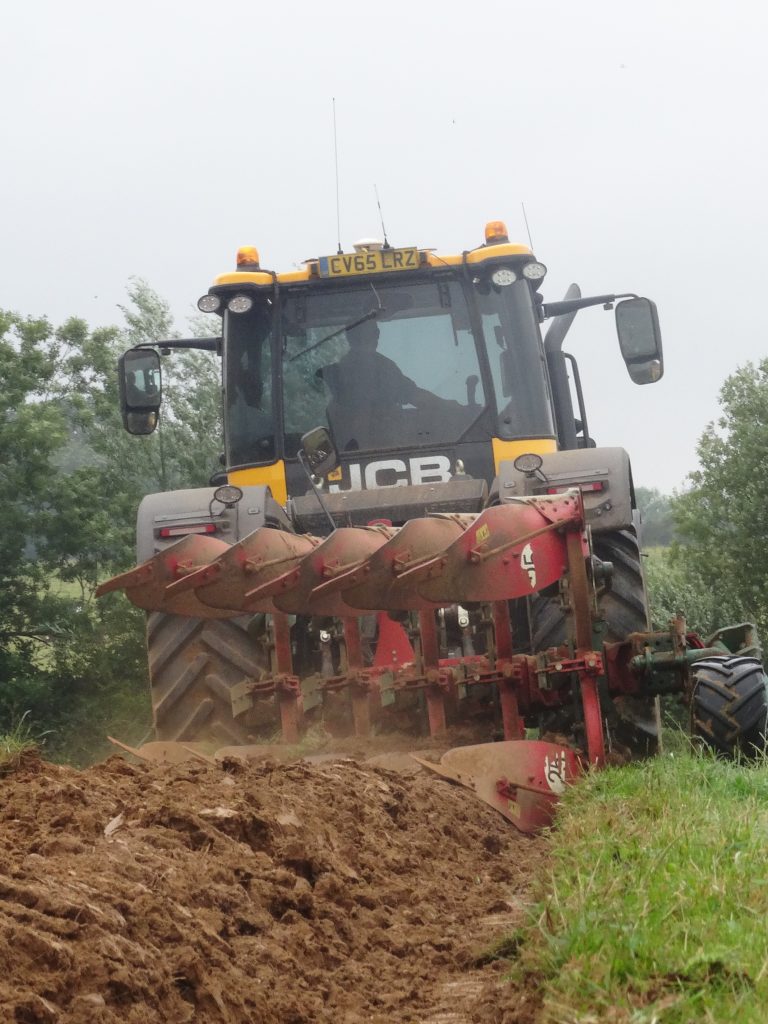
Aims & Approach
The series sets out to challenge and explore the following threads:
- How trees help manage water on farms – by improving infiltration and storage to effectively buffer arable land and pasture against flood risk and drought. We hear from researchers carrying out in-field trials and look at practical tree care tips and broader system design principles.
- Energy in the system – from firewood and biomass to nutrient cycling and carbon flow. Guests discuss how trees and hedgerows can play a major role in creating low-input, circular systems with lasting returns for both farm and climate
- How trees improve soil biology, structure and fertility. We explore how agroforestry systems can restore life below ground, support nutrient cycling, and offer long-term benefits for productivity, ecology and climate resilience.
- How trees shape airflow, shelter crops and livestock, and support vital pollinators. Guests discuss how agroforestry can change local conditions dramatically and how this has benefited the health of their soil and their animals.
- The educational and social dimensions that shape how agroforestry is understood and adopted, and the importance of co-design, community networks, shared knowledge, and long-term relationships in building agroforestry systems that work for both land and livelihoods.
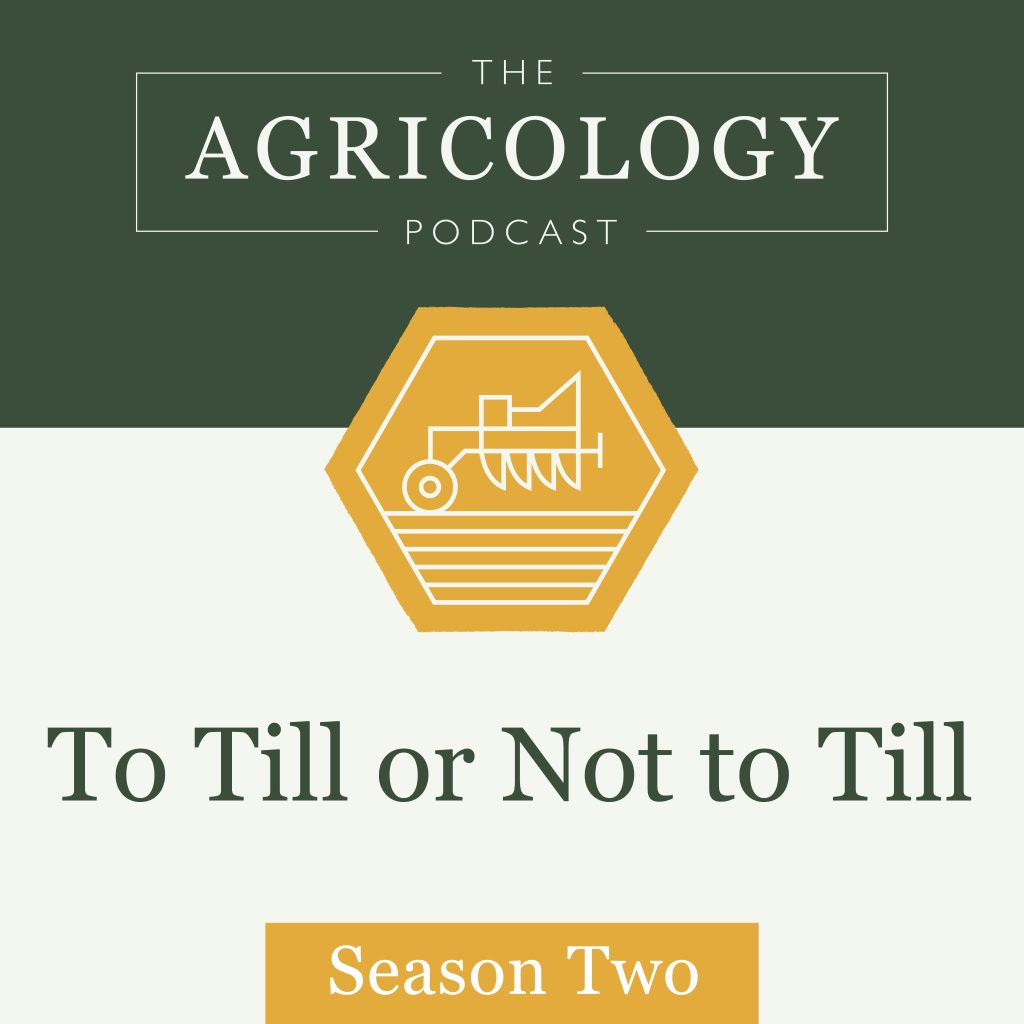
Project outputs
Explore each of the episodes below…
Latest episode
Episode 5
In Conversation With Jonathan Storkey
In the last episode of the series, plant ecologist Jonathan Storkey treats us to fascinating insights on biodiversity in production systems and soil microbial communities, emphasising how context is crucial when choosing your tillage approach. He shares his journey from birdwatching ecologist to leading weed scientist at Rothamsted Reseach, where he has been studying tillage and biodiversity interactions for over two decades.
He dives into the concept of “functional biodiversity”- pollinators, predators, and microbes that support food production, and how tillage impacts those delicate systems. We explore the Rothamsted long-term systems trials, where contrasting tillage approaches across different soil types are revealing nuanced shifts in yield, weed pressure, soil carbon, and microbial succession. Jonathan explains how early-stage bacteria-dominated soils differ from more stable fungal systems, and how physical disturbance resets succession.
“The effect of reduced tillage depends on where you are and what else you are doing in the system… We’re finding that the combination of reduced tillage + green compost + cover crops + a perennial ley in annual rotation is giving you added benefits. It’s having synergistic effects…In the regen ag conversation, layering these principles is absolutely crucial.“
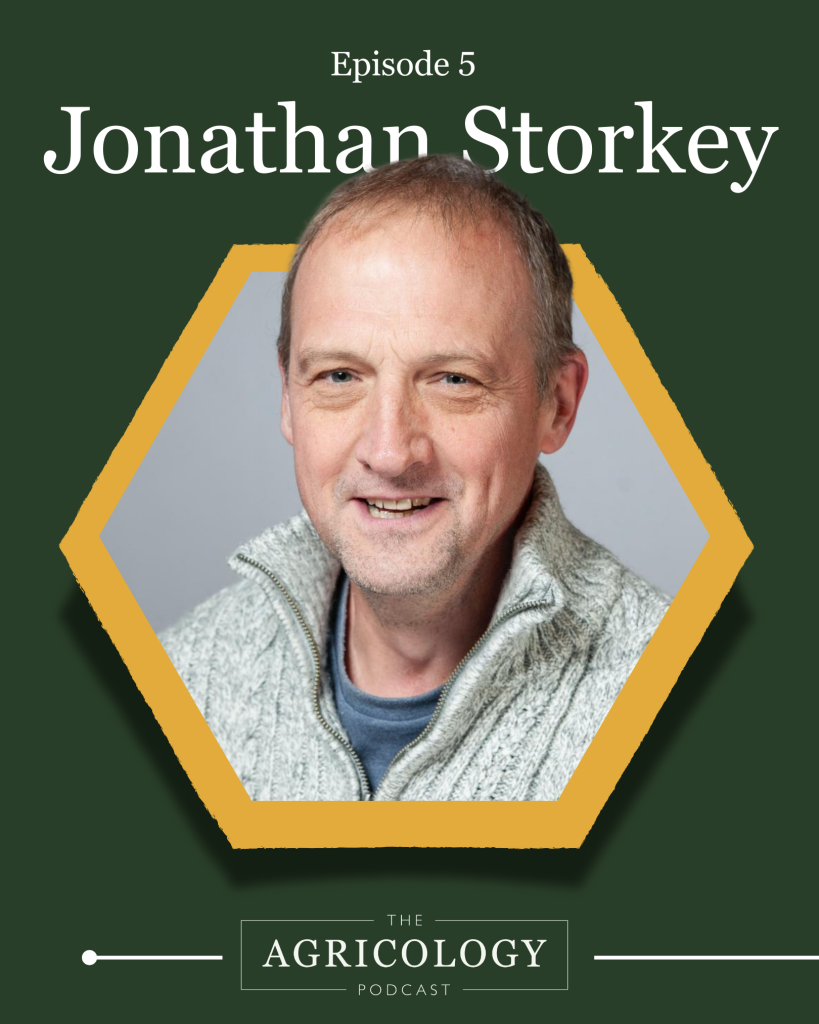
He also explores glyphosate reliance (including glyphosate-resistant weeds), weed control trade-offs, IPM potential, and the resilience of different systems to extreme weather events.
Listen to the episode here
Explore other Agricology podcasts here
Episode 4
In Conversation With John Pawsey
In this episode with farmer John Pawsey, we talk about the role of tillage in organic systems, balancing weed and pest pressures, how regenerative overlaps with organic, and how diversity drives success. John shares his journey from conventional spraying to organic, mixed farming (over 25 years ago). He explains why he ploughs selectively (once or twice in a six-year rotation) and how organic farming pushes innovation through the limits of its standards. His approach is rooted in observation, adaptability, and profitability.
We explore how he adjusts tillage depth based on weed type and the importance of bringing complexity into your rotation and not letting one problem dominate – in relation to weeds, pests and diseases.
“I came to realise that when you’re bringing complexity into a system like an organic system so that no one thing dominates… it’s got to be diverse in everything… drilling date… crops… rotation… but also there’s got to be a diversity in tillage because without being able to use any pesticides (especially herbicides)… if you keep on doing the same thing year in and year out, what you’re doing is you’re selecting problems… something that likes what you’re doing will dominate.”
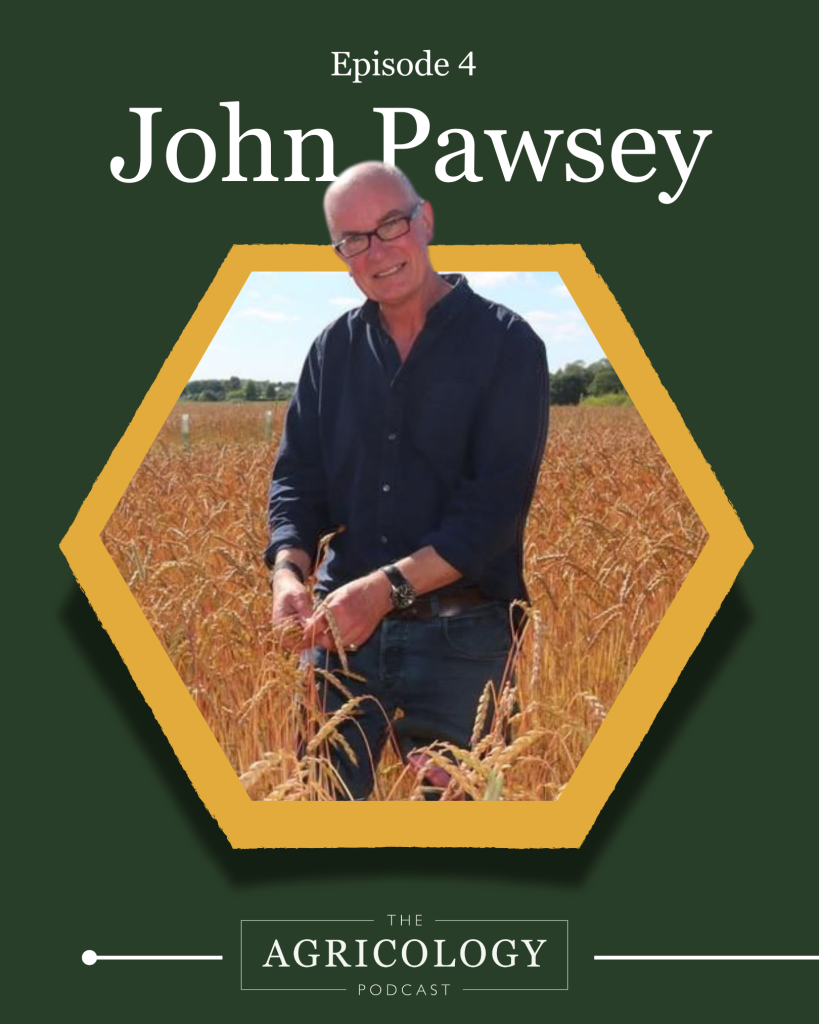
John reflects on reducing his sheep flock, soil health gains (now having up to 6% organic matter), and embracing Groundswell and regenerative ideas with an organic mindset. He describes a farming system built on context: some years min-till, others plough, all underpinned by leys, cover crops, and diversity in crops and drilling dates. His honesty about the learning curve, headspace shifts, and financial sustainability gives real-world clarity to the tillage debate.
Listen to the episode here
Explore other Agricology podcasts here
Episode 3
In Conversation With Julia Cooper
The third episode of the series welcomes the Organic Research Centre’s Julia Cooper who shares her expertise as a soil scientist. We look at soil health from a scientific perspective, focusing on nutrient cycling, carbon sequestration, and the nuanced role of tillage across different soil types and farming systems. Julia explains how soil health is context-specific, emphasising the importance of balancing biology, water management, and soil structure, rather than seeking one-size-fits-all solutions.
We dive into how tillage affects water retention, soil productivity and microbial life, and discuss trade-offs between conventional and reduced tillage, looking at how practices such as direct drilling and cover cropping interact with climate and soil type, rather than existing as binary choices.
“The carbon sequestration argument is not the strongest one… maybe the stronger argument for no till is around water and… protecting the surface of the soil so you have less run-off, more infiltration, less movement of soil out of the fields…”
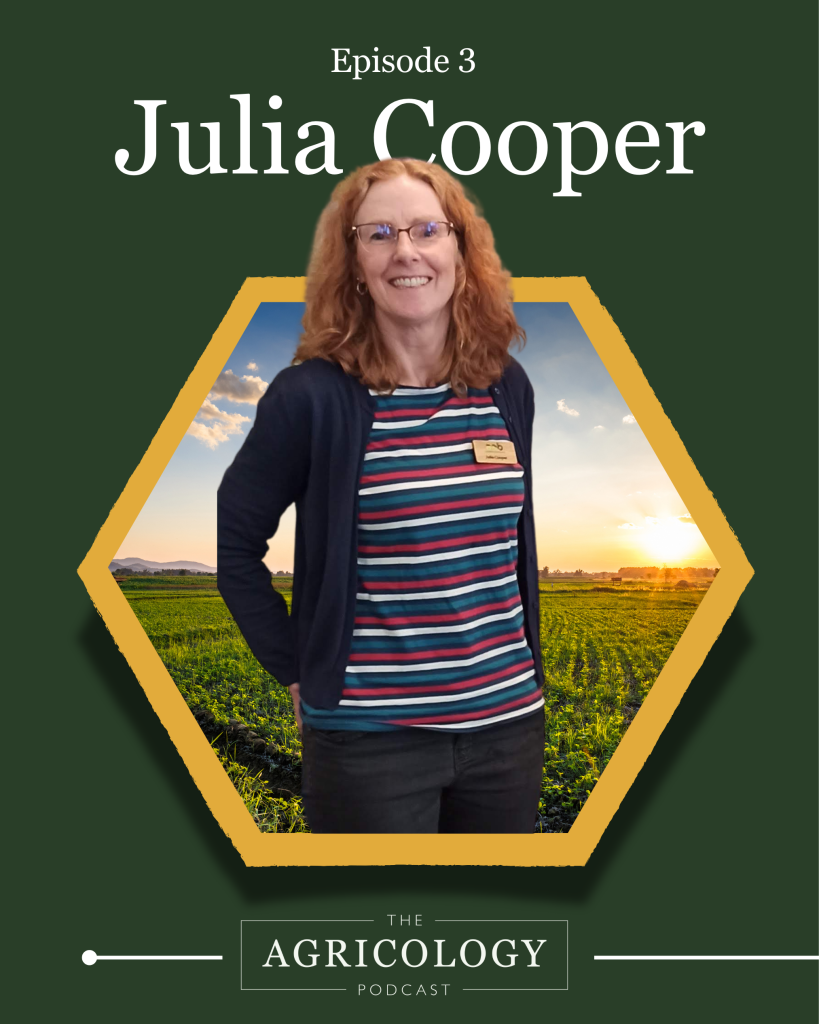
We also touch on glyphosate versus plough-use in regenerative and organic systems, with Julia advocating for pragmatic, context-led decisions. Her insights offer a roadmap for farmers to make informed, resilient choices suited to their own land and goals..
Listen to the episode here
Explore other Agricology podcasts here
Episode 2
In Conversation With Mark Measures
This second episode with Mark Measures explores the role of tillage in organic systems, the misunderstood relationship between tillage and soil carbon, the balance between weed control and nutrient cycling, and how tillage fits into wider farming systems. Mark reflects on 40 years in organic advice, with deep roots in research, education, and farmer engagement.
He argues that tillage, especially shallow and strategic, plays a crucial role in organic farming; not only for weed control and seedbed preparation, but also for stimulating nutrient release and building long-term stable carbon. He explores common misconceptions such as the oversimplified view that all tillage depletes soil organic matter, and explains that tillage can mineralise nutrients and stabilise humus, which is essential for carbon sequestration and water retention. He also challenges the belief that zero-till is the pinnacle of organic, pointing to climate and system-specific limitations.
“… less than 10% of arable farming in the UK is zero tillage, despite all the noise…That is a reflection of the fact that there are some problems with no till, including soil structure problems and weed problems…”
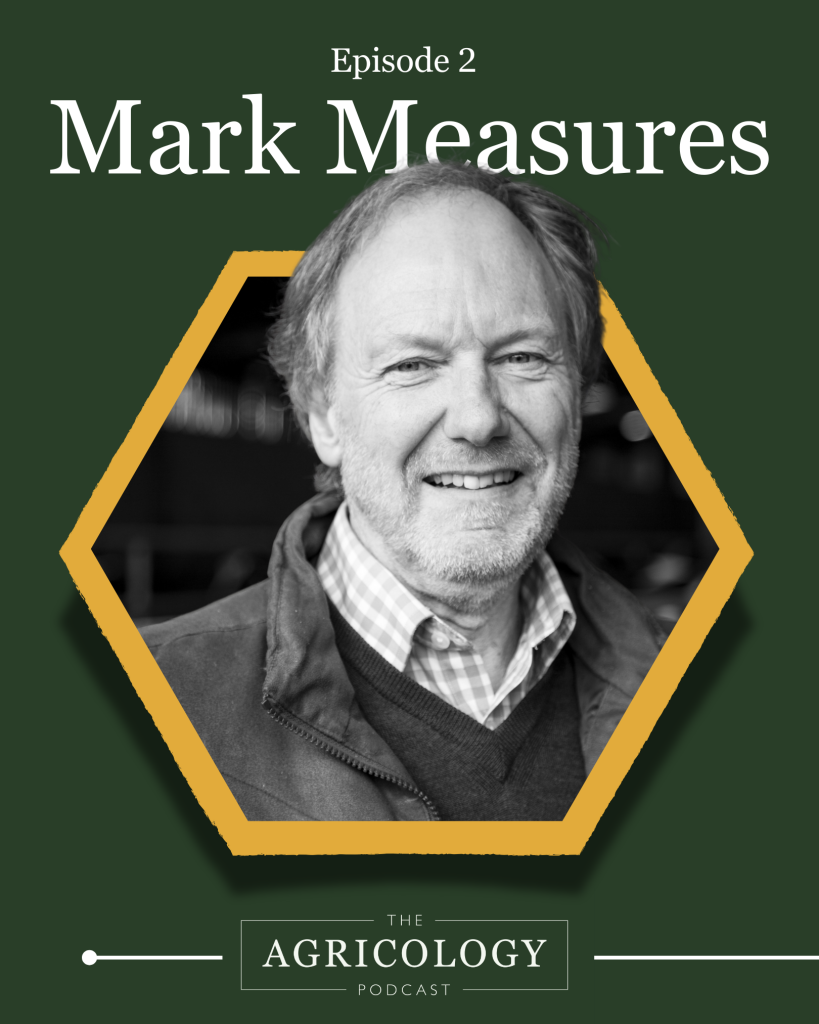
Mark advocates for strong rotations, fertility-building leys, and shallow, context-sensitive ploughing. He emphasises that tillage must be considered as part of a broader ecological, economic, and agronomic strategy – balanced, site-specific, and always evolving.
Listen to the episode here
Explore other Agricology podcasts here
Episode 1
In Conversation With Tom Martin (‘Farmer Tom’)
The first episode of our latest series introduces both Wallace Currie, guest podcaster from the Isle of Arran (search R2Kast), who will be chatting to guests throughout the series, and Cambridgeshire farmer Tom Martin. They discuss transitioning to no-till, the emotional and practical side of regenerative farming, redefining success through mistakes, and the value of community and biodiversity in agroecological systems.
Tom shares his life journey from Universal Pictures to working back on the family farm, explaining how those soft skills transferred to his role as a regenerative farming advocate. The farm has gradually moved from full inversion tillage to almost no-till – driven by soil health, improving drainage and weed pressure, and a desire to farm more efficiently.
“No till… It might be the first pillar often listed but it’s not the foundation. If you’re going to start something, start by increasing your rotation, getting living roots in the ground through the winter, start by protecting your soil surface… and then get into your reduced tillage…”
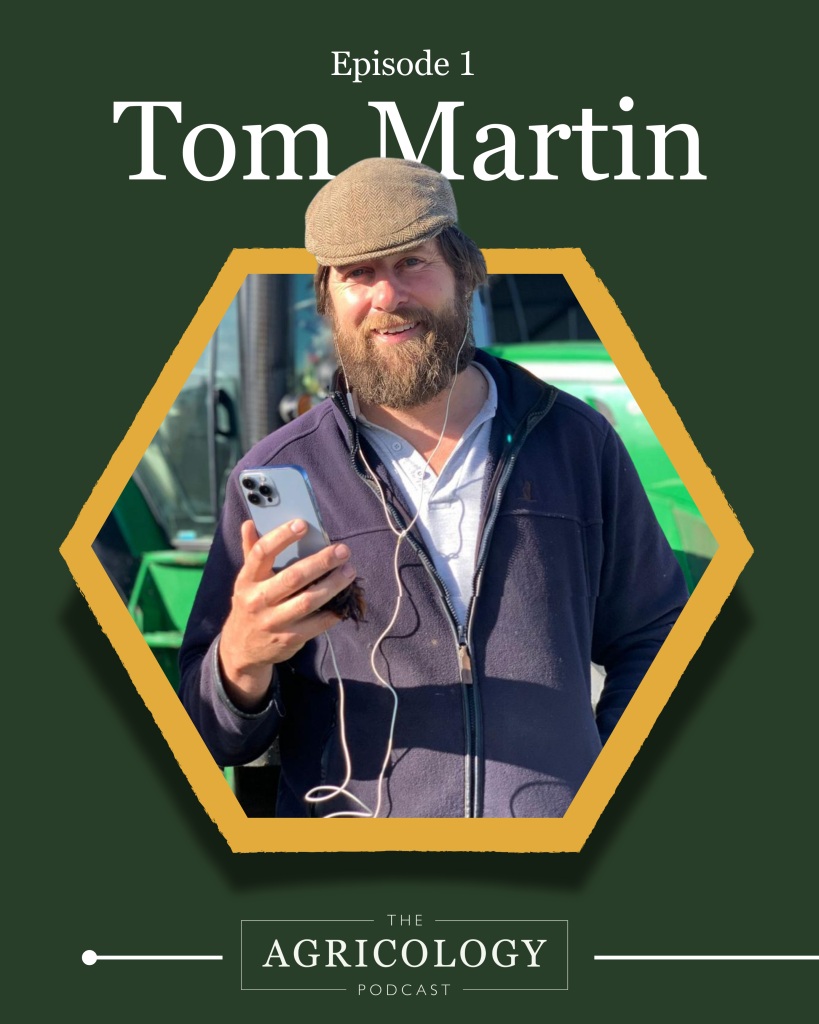
The conversation explores how Tom integrates companion cropping, livestock grazing, and molasses and biochar to support the soil microbiome. Mimicking nature and context-driven change are key to his success and philosophy.
Listen to the episode here
Explore other Agricology podcasts here
